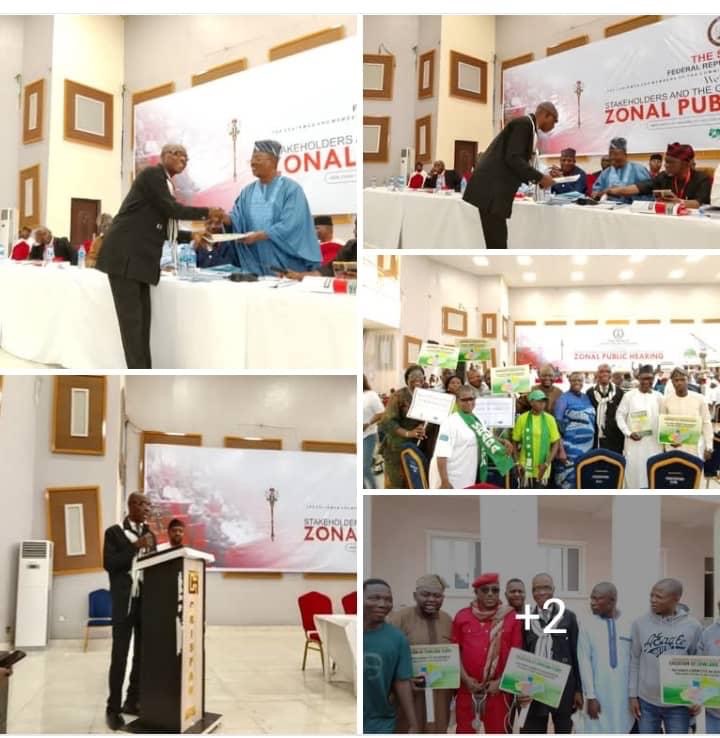A pivotal moment in Nigeria’s constitutional development unfolded recently as the campaign for the creation of Lowland State took center stage at a Senate Committee public hearing in Jos. The presentation, led by Comrade Timkat Peter ACA, represents a significant step forward in what could become a transformative chapter for over 3.7 million citizens in Plateau Southern and parts of the Central zones.
The proposal for Lowland State isn’t just about administrative restructuring it’s about unlocking potential. Comrade Timkat Peter, an International Human Rights Activist leading the Steering Committee, painted a compelling picture of a region blessed with abundant mineral resources and fertile land perfect for mechanized agriculture. His argument is straightforward: bringing governance closer to the people will create jobs, reduce poverty, and foster development in ways that centralized administration simply cannot achieve.
ALSO READ: Top Attractions in Jos Plateau State
The proposed state covers an area rich in natural resources, positioned strategically to become an economic powerhouse. With mechanized agriculture potential and untapped mineral wealth, Lowland State could serve as a model for how new states can drive regional development while contributing to national prosperity.
The path to statehood has been methodical and democratic. The Steering Committee first submitted their memorandum to the National Assembly on March 18th, 2025, which was subsequently shortlisted as a bill. The recent presentation to the Senate Committee on the Review of the 1999 Constitution at Crispan Event Center in Jos marks another crucial milestone in this journey.
Senator Barau Jibrin’s committee, represented by Senate Deputy Majority Leader Senator Oyelola Yisa Ashiru, has been conducting zonal public hearings across the country to gather input from Nigerians. This grassroots approach ensures that constitutional changes reflect the genuine needs and aspirations of the people.
The campaign has garnered impressive political backing. Comrade Timkat expressed particular gratitude to Senator Simon Bako Lalong, representing Plateau South, for his unwavering support. Perhaps most significantly, Plateau State Governor Barrister Caleb Manasseh Mutfwang has created an enabling environment for the initiative, supporting the broader principle of creating more states to accommodate Nigeria’s growing population.
This political alignment from local to federal levels suggests that the Lowland State proposal has moved beyond mere advocacy to serious legislative consideration.
The push for Lowland State comes within the context of comprehensive constitutional amendments covering 13 major areas. These reforms span electoral changes, judicial improvements, security restructuring, and governance inclusivity. The states and local governments creation component, under which Lowland State falls, is undergoing technical review and consultation for possible inclusion in the final constitutional amendments.
Other significant reforms being considered include the establishment of state police, devolution of powers to states, electoral reforms, and enhanced rights protections. This comprehensive approach suggests that Nigeria is embarking on its most ambitious constitutional review since the return to democracy.
The economic potential of Lowland State extends beyond its immediate beneficiaries. With its mineral resources and agricultural capacity, the proposed state could become a significant contributor to Nigeria’s GDP. The emphasis on mechanized agriculture aligns with the country’s food security objectives, while mineral exploration could boost foreign exchange earnings.
The creation of new states often leads to increased infrastructure development, educational institutions, and healthcare facilities, creating a multiplier effect that benefits the entire region.
As the Senate Committee continues its deliberations, the outcome for Lowland State remains eagerly anticipated. The thoroughness of the presentation, the political support garnered, and the economic justification provided all point to a strong case for creation.
The success of this initiative could set a precedent for other regions seeking statehood, potentially reshaping Nigeria’s federal structure to better serve its diverse population. For the 3.7 million citizens who could benefit from Lowland State, this represents more than administrative change it’s about hope for a more prosperous and equitable future.
The constitutional review process continues across Nigeria’s geopolitical zones, with each public hearing bringing the nation closer to what could be its most significant constitutional transformation in decades. For Lowland State advocates, the journey from memorandum to potential reality represents the best of democratic process patient, persistent, and ultimately hopeful.

